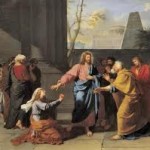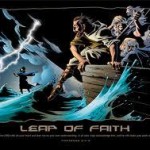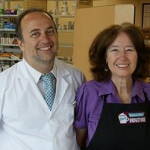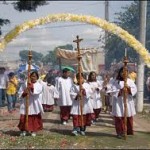Twenty-first Sunday in Ordinary Time – Cycle A
We’re never gonna figure it out. That was actress Meryl Streep, talking with an interviewer a few years back about her own quest to know God. And she’s right. We’re never gonna figure it out. But the search fills our lives with beauty and meaning.
We catch a glimmer of the divine, and the electricity from that encounter keeps us going for the rest of our lives. St. Paul’s encounter with Jesus on that fateful Damascus road lasts just a few seconds; the remaining thirty years of his life are spent looking forward to the day when he will meet Jesus again in eternity.
Fourth of July fireworks interfere with migratory patterns and thousands of birds fall from the sky, birds we never noticed, birds we never knew were there. And they are just the tiniest fraction of the birds of the air―one hundred billion— that our Heavenly Father feeds every day. Oh, the depth of the riches of God.
The human heart is restless, yet deeply touched and comforted by a random call from a friend, a rainbow over the highway at rush hour, a persistent intuition that we are never alone. Oh, the depth of the knowledge of God.
Who do you say I am? Jesus asks. Search your heart for your answer. It’s the only thing you ever really need to figure out.
In what ways do you experience the depth of the riches of God?
What would YOU like to say about this question, or today’s readings, or any of the columns from the past year? The sacred conversations are setting a Pentecost fire! Register here today and join the conversation.
I have come to light a fire on the earth; how I wish it were already burning (Lk.12:49).











I can say that there have many times that I have been touched and protected by God’s great and uneding mercy and love. I was in a terrible car accident the whole side of the back fender was gone and the gas tank hanging with gas going everywhere, and I survived! I had blood clots go to my lungs, I woke up in the night and couldn’t breathe, and I survived, I am not deserving of these blessings and yet I receive them only by the grace of God. I have been poor and had to work hard for my living, For every struggle there has been the hand of God showing me the rich and beatiful treasure of life.
regarding your article dated August 20, 2011 about the fireworks that kill thousands of birds and interfere with their migratory patterns – there’s another killer out there that many are not aware of – that is the man made windmills in Southern California- they kill many of God’s creatures on a daily basis -at least with the 4th of July, it’s only one day a year.
One of the most wonderful gifts of my life is the time that I spend as a spiritual director/companion. I listen in awe to the stories that directees tell me and the way their story is part of God’s story. I recognize with humility how graced we are by God’s presence and the riches bestowed upon us. What a privilege it is to companion them in their joy and sorrow, their wonder and doubt, their strength and struggle. It is all part of God’s abundance. Their blessings become mine.
I experience the depth of the riches of God every morning that I wake up. I try to remember to say a little prayer of thanksgiving for another day, adding, “What a nice surprise!”
http://www.todaysepistle.com